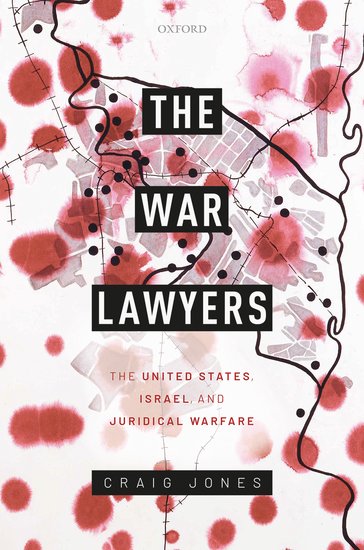Like all my readers, I suspect, I’ve been battling many things these past months: including, right now, the intensity of teaching online. More on that later, since I doubt that’s what most of you come here for, so what better to celebrate my re-start than news of the publication of a wonderful new book, The War Lawyers: the United States, Israel and Juridical Warfare by my dear friend Craig Jones:
Over the last 20 years the world’s most advanced militaries have invited a small number of military legal professionals into the heart of their targeting operations, spaces which had previously been exclusively for generals and commanders. These professionals, trained and hired to give legal advice on an array of military operations, have become known as war lawyers.
The War Lawyers examines the laws of war as applied by military lawyers to aerial targeting operations carried out by the US military in Iraq and Afghanistan, and the Israel military in Gaza. Drawing on interviews with military lawyers and others, this book explains why some lawyers became integrated in the chain of command whereby military targets are identified and attacked, whether by manned aircraft, drones, and/or ground forces, and with what results.
This book shows just how important law and military lawyers have become in the conduct of contemporary warfare, and how it is understood. Jones argues that circulations of law and policy between the US and Israel have bolstered targeting practices considered legally questionable, contending that the involvement of war lawyers in targeting operations enables, legitimises, and sometimes even extends military violence.
Contents:
Introduction: The War Lawyers
1. Targeting without Lawyers: The Vietnam War
2. The Birth of “Operational Law”
3. “‘The Lawyers’ War”
4. Targeting in the Israeli Military
5. The Kill Chain (I): Deliberate Targeting
6. The Kill Chain (II): Dynamic Targeting
Conclusion: Juridical Warfare: Limits and Possibilities
(The cover is from an image by the brilliant elin o’Hara slavick (Bomb after Bomb: a violent cartography).


Pingback: Craig Jones, The War Lawyers: The United States, Israel and Juridical Warfare – Oxford University Press, December 2020 | Progressive Geographies